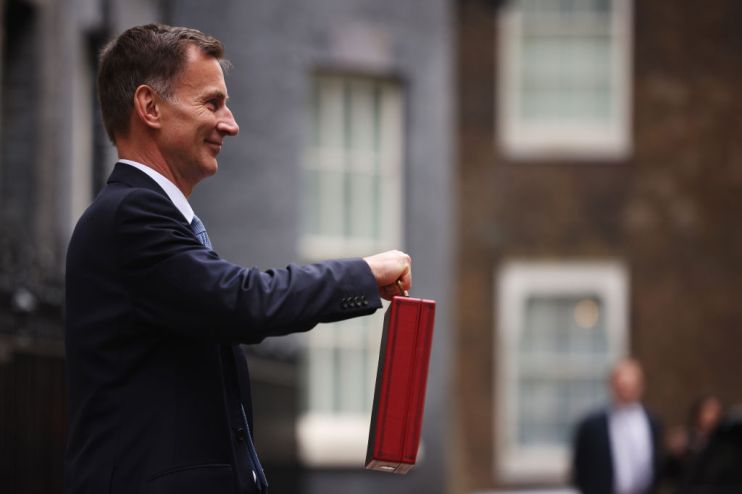UK borrows more than expected ahead of Autumn Statement as tax cuts mooted

The government borrowed more than expected in October, providing a “timely reminder” about the state of the UK’s fiscal position ahead of the Autumn Statement.
According to figures from the Office for National Statistics, the government borrowed £14.9bn in October, £1.2bn more than had been pencilled in by the Office for Budget Responsibility (OBR).
This was the second highest October borrowing figure since records began in 1993.
The overshoot primarily resulted from higher than expected government expenditure, which was £13.7bn more than the OBR had expected. This reflected higher public sector pay packets for workers squeezed by inflation.
The figures also showed that higher interest rates are starting to bite. Debt interest payments made up £7.5bn of government expenditure compared to the less than £5bn expected by the OBR.
Public sector net debt stood at £2.64trn at the end of October and was estimated at around 97.8 per cent of GDP.
Samuel Tombs, chief UK economist at Pantheon Macroeconomics, said: “October’s figures provide a timely reminder that the task of restoring the public finances to a sustainable footing is far from complete”.
The Chancellor is set to deliver the Autumn Statement tomorrow and is widely expected to announce a fairly limited set of tax cuts.
Responding to the figures, Chancellor Jeremy Hunt said “we must keep on supporting the Bank of England to drive inflation down to two per cent. That means being responsible with the nation’s finances.”
“At my Autumn Statement tomorrow, I will focus on how we boost business investment and get people back into work to deliver the growth our country needs,” he continued.
Although the government borrowed more than anticipated in October, higher inflation has boosted the government’s fiscal position across this financial year as people are pulled into higher tax brackets.
Already this financial year, the government has borrowed around £17bn less than the OBR predicted in its March forecasts. This will mean the Chancellor is likely to have more headroom to meet his key fiscal targets than had been the case earlier in the year.
The government had previously been resistant to calls for tax cuts, fearing that a boost to consumption may prompt a resurgence in inflation.
However, in a speech yesterday, Rishi Sunak promised that the government can “turn (its) attention to cutting tax” after October’s sharp fall in inflation. Over the weekend Hunt hinted that businesses would be the most likely beneficiaries of any tax cuts, saying his priority is “backing British business“.
“With the election drawing nearer, the Chancellor surely won’t be able to resist the temptation to unveil a pre-election splash,” Ruth Gregory, deputy chief UK economist at Capital Economics said.
While the government’s fiscal position has been better than expected this year, things are unlikely to get any better for the Chancellor in the near future due to the impact of higher interest rates.
Michal Stelmach, senior economist at KPMG UK, said “while we expect the OBR to revise down its borrowing forecast for 2023-24 by around £22bn, the prospect of persistently higher interest rates is set to more than offset any windfall over the medium term”.